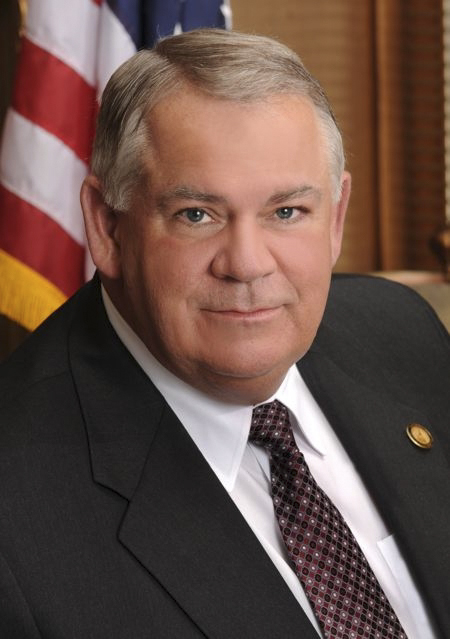
Georgia’s elections chief is leaving it up to the governor and state legislature whether to postpone the May 19 primaries another month after a prior delay in the face of coronavirus.
Georgia Secretary of State Brad Raffensperger already has put back Georgia’s originally scheduled March 24 presidential primary to May 19, coinciding with the state and local primaries. But Georgia House Speaker David Ralston and all 11 Republican members of the state’s congressional delegation are pushing to delay all of the primaries until mid-June.
Such a delay would be both impractical and unlawful, Raffensperger said earlier this week.
But in an interview with Capitol Beat News Service Wednesday, Raffensperger said he would not stand in the way of the General Assembly or Gov. Brian Kemp if they decide to take the necessary executive and legislative actions to delay the May 19 primaries.
To do so, Kemp would need to extend the public health emergency Georgia is under because of the COVID-19 outbreak beyond its current April 13 expiration date, Raffensperger said. State lawmakers would also need to reconvene and pass legislation to push back the state and local primaries from their May 19 date, as well as the presidential primary by another 45 days.
“If they want to move it, let us know what date it is and we’ll have it on that date,” Raffensperger said.
Kemp’s office declined to comment Wednesday around noon, noting the governor plans to hold a press conference at 4 p.m. during which he will take questions from reporters about the primary.
As of noon Wednesday, more than 4,600 Georgians have tested positive for COVID-19, the disease caused by the novel strain of coronavirus that has sparked a global pandemic. It has killed 139 patients from Georgia.
Asked if he felt conditions would be safe enough for in-person early voting starting late this month and for the May 19 primary day, Raffensperger said that is a tough prediction to make.
“Four to six weeks ago, the stock market was at record high and unemployment at record low,” Raffensperger said Wednesday. “Where we’ll be with coronavirus in two, four, six weeks from now is difficult to determine at the present time.”
Ralston, the House speaker, penned a letter Sunday requesting that the primaries be reset for June 16 to give the state “more time for testing health responses and other precautions.” He countered that Raffensperger could already postpone the presidential primary due to an overlapping federal emergency declaration, while suggesting state party leaders would be open to a delay even if it conflicts with the national party conventions.
Ralston, R-Blue Ridge, reiterated that stance in a radio interview Wednesday morning, arguing that either the governor or Raffensperger himself could still postpone the primaries without running afoul of state law.
“The most non-feasible way is to have the members of the General Assembly called back in to violate every directive issued by the [Centers for Disease Control and Prevention] and President Trump to do this when God knows how long we would have to be there debating it,” Ralston said.
“That’s a cop-out position,” he added.

The General Assembly should not have to reconvene to change the primary date if Raffensperger and Kemp decide that is the course they want to take, said Kaleb McMichen, a spokesman for the speaker’s office.
The House speaker also said he has already fielded concerns that many poll workers may not show up for the May 19 election to avoid coronavirus exposure.
“We can’t tell the people of Georgia today that they will be safe in going to vote on that day, physically going to the voting precinct that day,” Ralston said. “And until we get to that point, I think it’s premature to set this primary.”
In a separate letter sent Tuesday, the state’s 11 Republican members of Congress – nine representatives and two senators – also urged Raffensperger to push back the primaries “to the latest date possible” to curb health risks from coronavirus. They worried the May 19 date could expose older poll workers to the virus and create huge costs for local governments to sanitize voting precincts.
“The right to vote is a fundamental right that should be guaranteed to each and every eligible Georgia citizen,” the letter states. “Georgia voters should not be asked to choose between exercising that right and following the guidance of federal, state and local officials to keep themselves, their families and our communities healthy.”
Raffensperger said his office has already received shipments of sanitary wipes for local precincts to use and has put in an order for protective N95 face masks. He said his office plans to draw up sanitation guidelines that counties would then have to adopt themselves.
State law requires three weeks of in-person early voting ahead of the May 19 primary, Raffensperger noted. To discourage in-person voting, his office is mailing out applications for absentee ballots to all 6.9 million registered Georgia voters.
“With times such as these, people are in certain places,” Raffensperger said. “We’re here now and we’ll put our heads together to find solutions. We’ll figure it all out, one way or another. But I’m really confident.”